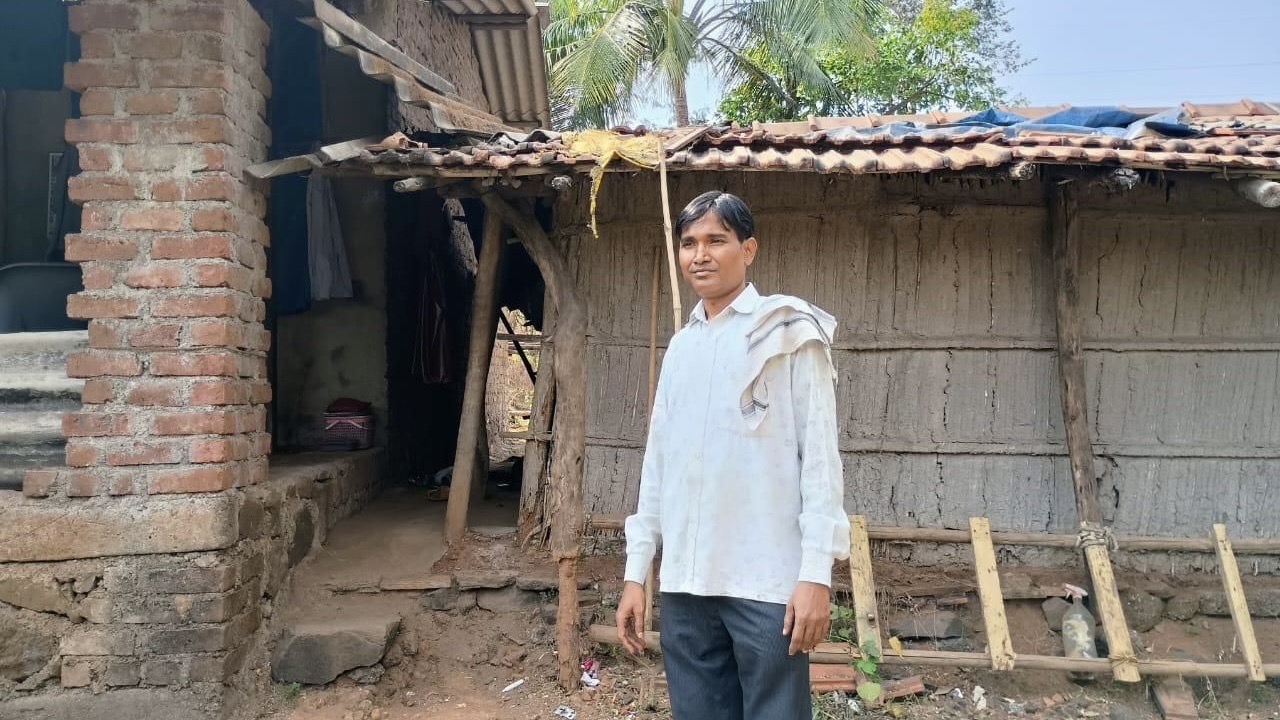

Fighting malaria safely: Sachin’s story
03 February 2025 UNIDO
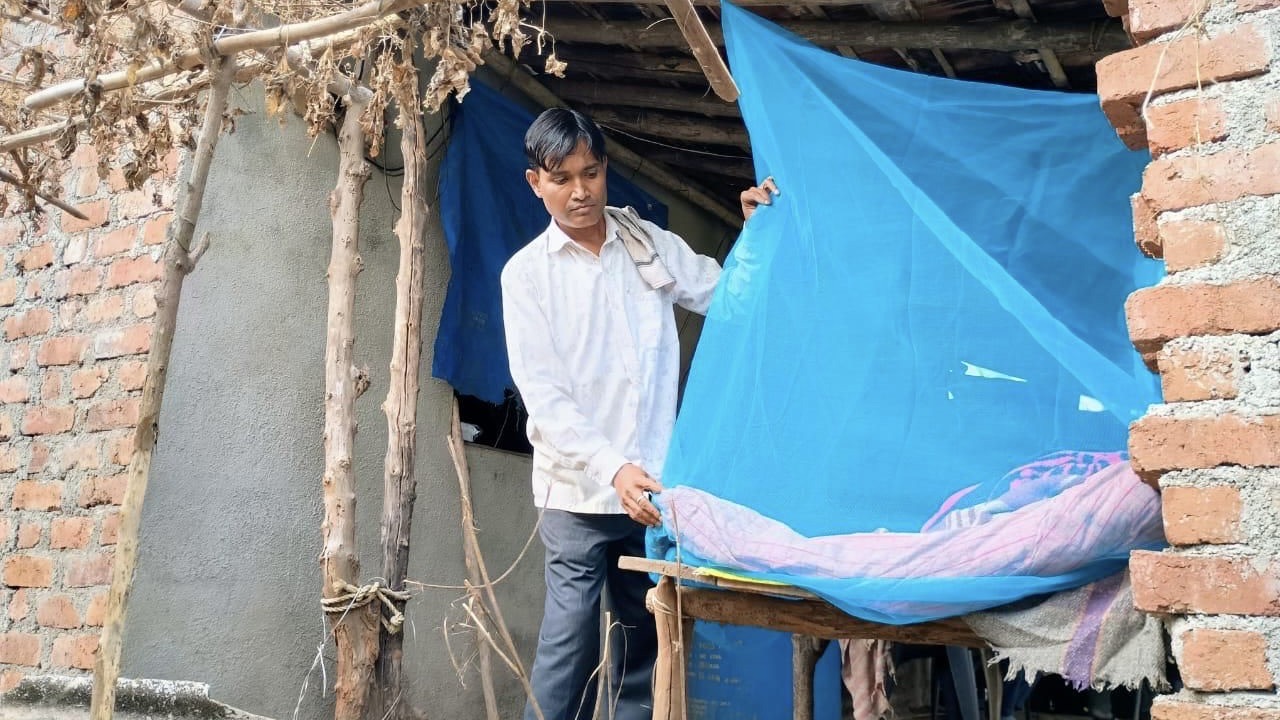
“Living in a malaria-prone area is stressful. Sometimes, it feels like we're just waiting for someone to fall sick, and managing that constant fear is exhausting,” says Sachin.
Sachin lives in Rasayani, a town 60 kilometres from Mumbai. Malaria is prevalent across India, including the Maharashtra region.
“Malaria has been a significant issue in our area. In fact, I have witnessed many people, including family members and friends suffer from it and I've had several close calls myself,” he tells us.

Despite the constant fear described by Sachin, often the protection measures available seemed to fall short. “We used mosquito coils at night, and occasionally sprayed the house with insecticide, which sometimes caused headaches and skin irritation. While these measures did help, they didn’t always seem sufficient. There were times when mosquitoes still managed to get inside, or the repellents didn't last long enough, especially during the hotter months.”
The measures taken by Sachin and his family and neighbours likely contained dichloro-diphenyl-trichloroethane (DDT), a highly toxic chemical that has been linked to cancer, reproductive issues, and developmental disorders in children.
Although DDT was banned for agricultural uses worldwide by the 2001 Stockholm Convention on Persistent Organic Pollutants (POPs) it has remained in use in small quantities for mosquito control, as countries like India seek to transition to safer alternatives.
A joint UNIDO /UNEP project has contributed significantly to this transition with the support of the Global Environment Facility (GEF) and executing partners, the Ministries of Health and Family Welfare (MoHFW), and Environment, Forest, and Climate Change (MoEFCC).
“DDT has been a key tool for malaria control in India for decades but has created significant challenges,” explains UNIDO expert and project coordinator, Dr. Yash Pal Ramdev. “The National Vector Borne Disease Control Programme (NVBDCP) relies on DDT in some areas, but alternatives are gaining traction.”
Bio-pesticides and Long-Lasting Insecticidal Nets (LLINs) are among the alternatives developed under the project, which could lead to the end of DDT production globally, given that India is the last country in the world to produce it.
“Since becoming involved in the project, my daily routine has changed significantly,” Sachin tells us. “I’ve become more educated about the lifecycle of the mosquito and how malaria is transmitted. I now make sure to use the LLINs that were distributed to us every night, which gives me peace of mind. I also participate in regular community clean-up drives, where we clear areas of stagnant water where mosquitoes breed.”
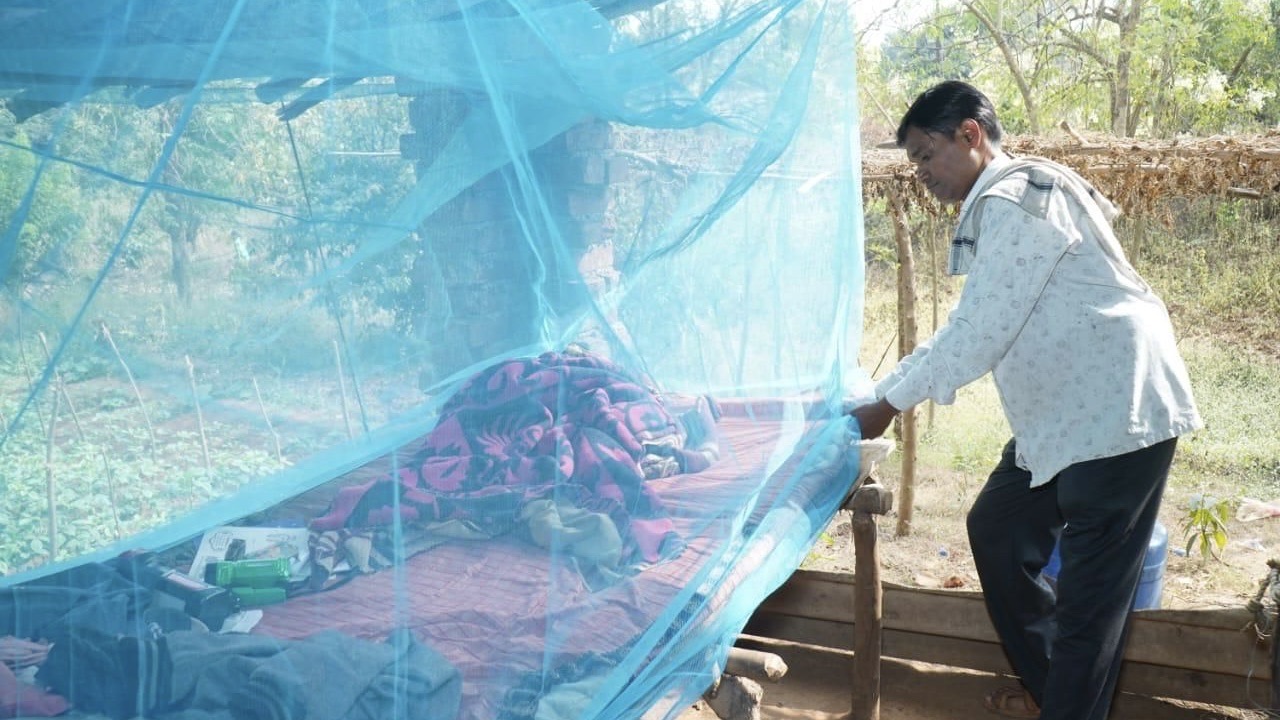
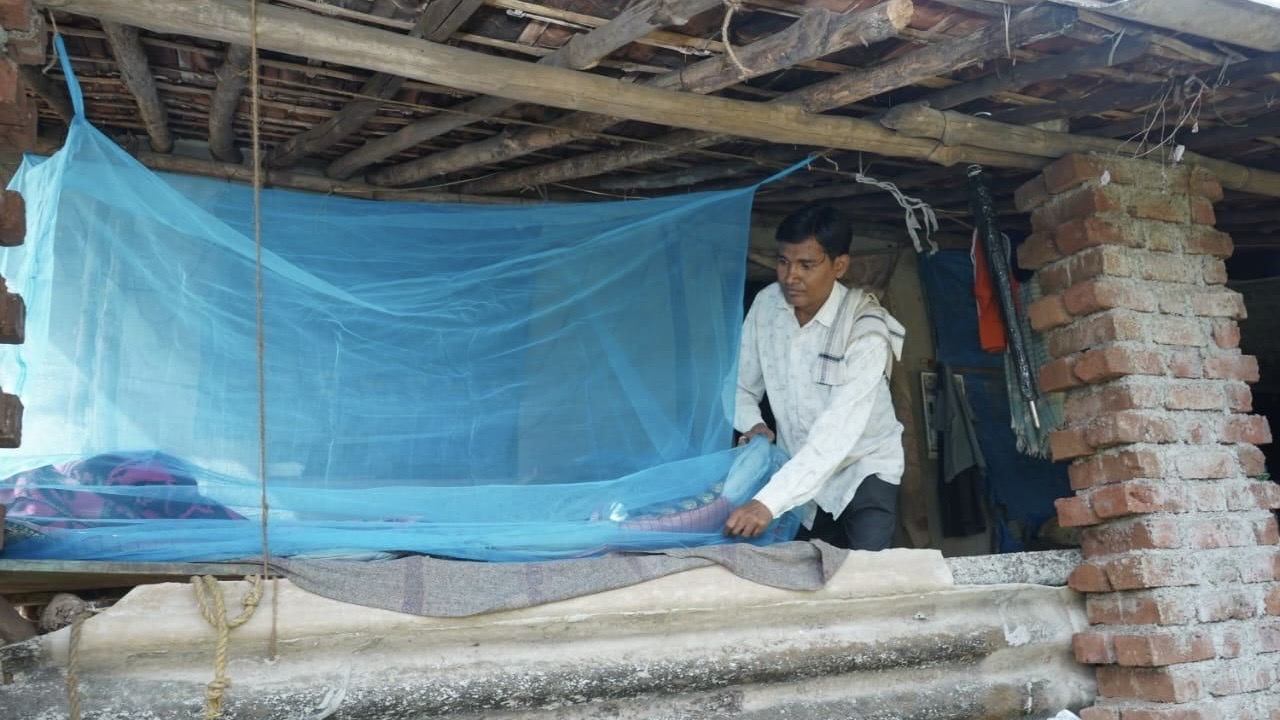
Sachin was one of 3 million people nationwide to receive LLINs under the project. “These nets are one of the most cost-effective and reliable methods for malaria prevention,” clarifies Dr. Ramdev. “They are designed to last for three years and require minimal maintenance compared to other methods, such as indoor spraying. The insecticides that are used also kill mosquitoes on contact, thus reducing the transmission of malaria parasites.”
Beyond the public health impact that the distribution of the LLINs has made, the establishment of LLIN production facilities at the Hindustan Insecticides Limited (HIL India) complex has created jobs and helped to ensure access to affordable alternatives, employing more than 200 women.
“These initiatives not only improve health outcomes but also contribute to economic development and gender equality,” affirms Dr. Rajendra Thapar, Deputy General Manager of HIL (India), a government-owned public sector enterprise that is the world's only registered producer of DDT.
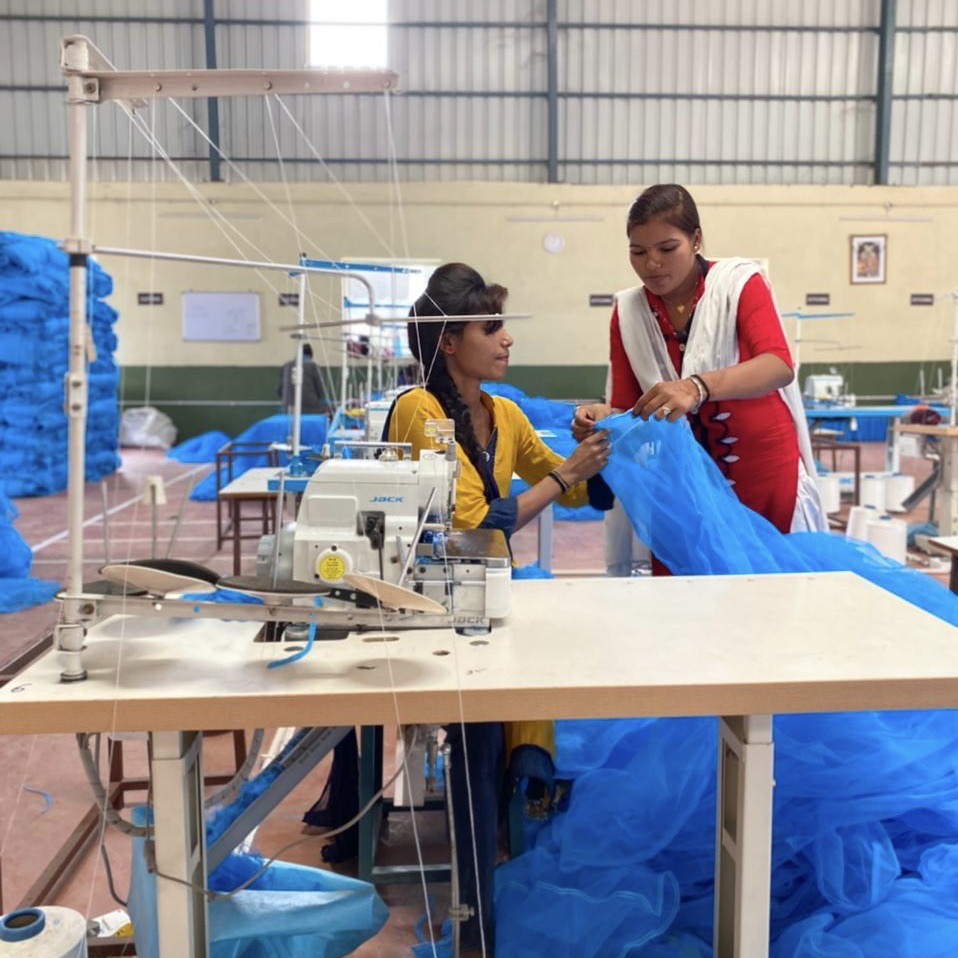
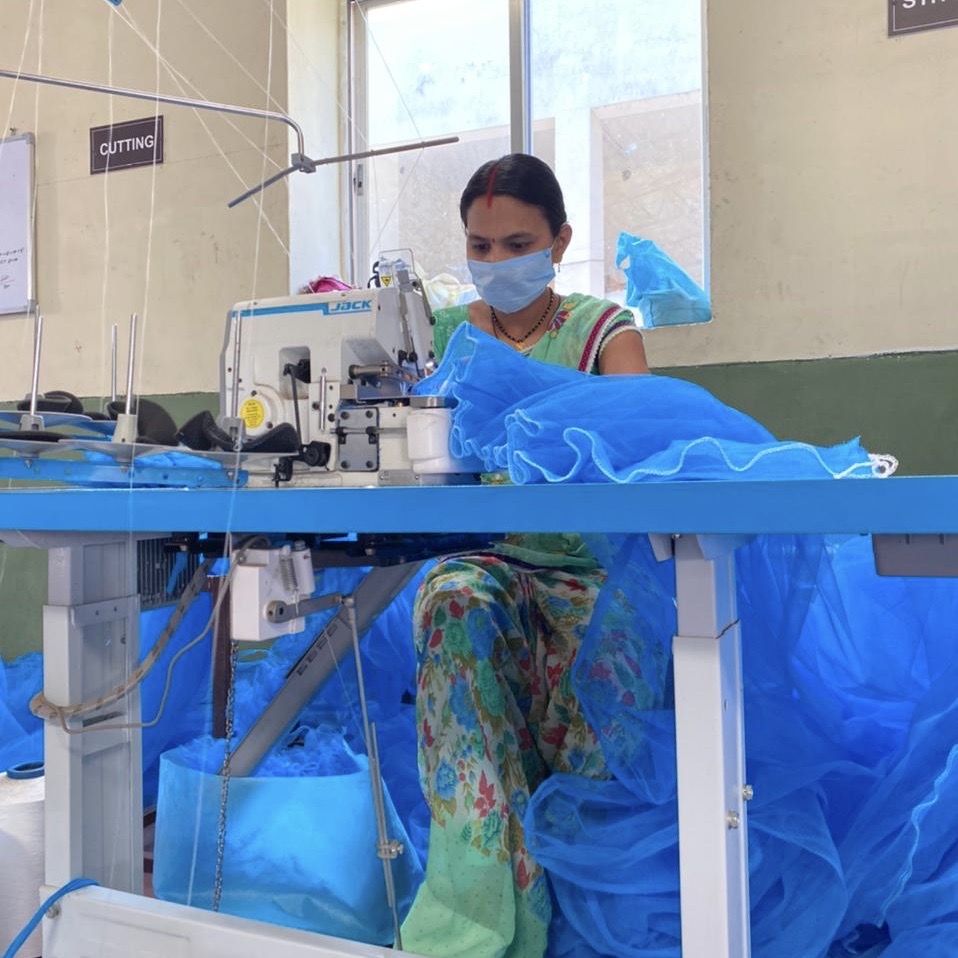
HIL (India) has played a significant role in the project due to its historical position as a key supplier of DDT for India’s National Malaria Eradication Programme (NMEP) since its establishment in 1954.
In collaboration with UNIDO and other stakeholders, HIL has worked to modernize its production processes and diversify into eco-friendly solutions, reinforcing its central role in balancing public health priorities with environmental responsibilities.
“Studies have shown that LLINs can reduce malaria-related deaths by up to 20% in high-risk areas, particularly benefiting vulnerable groups like children and pregnant women,” LLIN plant manager, Nitesh Gujar tells us. “One of the most impactful aspects of the project was its focus on empowering women through employment in LLIN production facilities,” the former DDT Production Manager says.
Large-scale production plants have also been set up for environmentally-friendly biopesticides derived from natural materials, such as bacteria (Bacillus thuringiensis) and plants (neem). These alternatives target mosquitoes, while minimizing harm to humans and wildlife.
Further, biopesticides typically degrade more quickly than chemical pesticides. “This reduces their long-term environmental impact and minimizes the risk of resistance developing in target pests,” explains Dr. Ramdev. “In the context of malaria control, biopesticides complement LLINs by reducing mosquito populations in breeding areas, thus enhancing the effectiveness of other malaria control methods.”
“With growing concerns over (traditional) pesticide resistance, the demand for safer and more effective solutions is increasing globally. Biopesticide production facilities are well-positioned to scale up as part of a broader integrated malaria control program and there is significant potential to expand these facilities to other malaria-prone regions,” Dr. Thapar affirms.
“This project has made significant progress in supporting India to meet its obligations under the Stockholm Convention by reducing reliance on harmful chemical pesticides like DDT,” states UNIDO Project Manager, Maren Mellendorf. “Most importantly, it has combined sustainable innovation and economic empowerment for a safer, cleaner environment.”
“During the malaria transmission season, I’m more vigilant, and I’m also involved in spreading awareness and encouraging others to take preventive measures,” says Sachin. “Thanks to the project, the community has seen fewer malaria cases, and there’s a collective effort to reduce the risks.”
For further information, please contact:
Industrial Development Officer, UNIDO